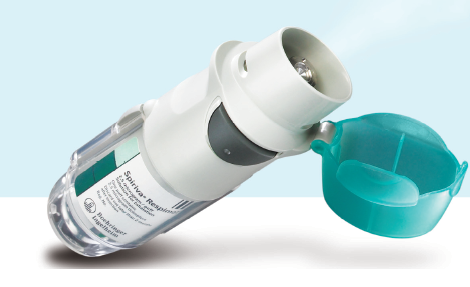One of the world’s leading pharmaceutical companies, Boehringer Ingelheim, has just announced its inhalation spray for COPD, SPIRIVA Respimat (tiotropium bromide), has received approval from the US Food and Drug Administration to be used as a long-term, once-daily, maintenance treatment of asthma in patients as young as 12 years old. It was September 2014 when Spiriva Respimat was first approved by the FDA as a maintenance treatment for COPD.
The active ingredient tiotropium, administered via soft-mist inhaler, was recently included in the newly-updated Global Initiative for Asthma report (GINA) 2015 Global Strategy for Asthma Management and Prevention. According to studies, almost half of asthma patients rely on maintenance therapy, but still suffer from the disease’s symptoms. Boehringer’s breakthrough inhalation spray demonstrated in a Phase III study that:
- It significantly alleviates asthma symptoms.
- Patients are 68% more likely to improve asthma control.
- It significantly decreases the risk of patients having a severe asthma exacerbation by a fifth (21%).
- It reduced the number of patients who experienced a severe asthma exacerbation.
- The safety of SPIRIVA® Respimat® is balanced as compared to placebo.
Dr William Mezzanotte, Head of Respiratory Medicine, Boehringer Ingelheim, said, “The U.S. FDA approval of SPIRIVA® Respimat® in asthma establishes a new class of inhaled asthma therapy and provides an efficacious, new option for patients. There is extensive clinical evidence demonstrating that SPIRIVA® Respimat® can improve outcomes for patients with asthma who remain symptomatic despite the use of ICS/LABA maintenance therapy. This is reflected by the inclusion of SPIRIVA® Respimat® in the latest update of the GINA global asthma management strategy.”
An alternative treatment with roflumilast – an oral phosphodiesterase-4 (PDE4) inhibitor– used as a treatment for chronic obstructive pulmonary disease was suggested as a potential new treatment for asthma (in COPD patients, roflumilast administration was shown to improve lung function and reduce frequency of exacerbations). The effect of roflumilast in asthma patients is less understood, particularly its mechanisms of action and bronchodilatory effects.

